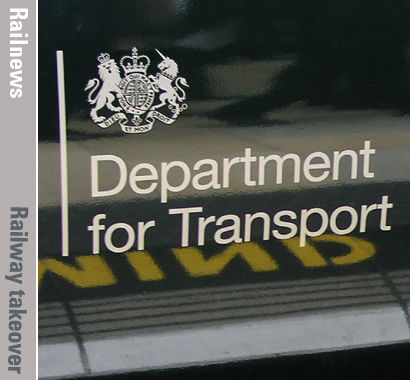Updated 09.18 (RMT response)
THE Government is suspending rail franchises and converting them into management agreements, as part of the response to the coronavirus emergency.
Operators are being invited to accept ‘Emergency Measures Agreements’ for at least the next six months, so that they are free to act ‘in the national interest’. Any operator which declines the offer faces full renationalisation, using the Department for Transport’s Operator of Last Resort.
The news comes just over a week before the existing Great Western Railway and Southeastern franchises had been due to expire.
Under the new terms operators will no longer take commercial risk but will receive fixed fees, which have been capped at 2 per cent.
The DfT said the fees would be measured by ‘the cost base of the franchise before the Covid-19 pandemic began, intended to incentivise operators to meet reliability, punctuality and other targets’.
Passengers holding Advance tickets for future journeys will now be able to claim full refunds, as non-essential travel is now being firmly discouraged.
The Government said its emergency measures were designed to ensure that necessary rail services continue. The number of people travelling by rail has fallen by 70 per cent since the emergency began, according to the DfT, and timetables have been cut by roughly half from today.
The DfT added: ‘Rail fares revenue has also reduced as people increasingly work from home and adopt social distancing, with total ticket sales down by two-thirds from the equivalent date in 2019.’
It continued: ‘Allowing operators to enter insolvency would cause significantly more disruption to passengers and higher costs to the taxpayer. The management fee will allow operators to act in the national interest in tackling Covid-19.’
Transport secretary Grant Shapps said: ‘We are taking this action to protect the key workers who depend on our railways to carry on their vital roles, the hardworking commuters who have radically altered their lives to combat the spread of coronavirus, and the frontline rail staff who are keeping the country moving.
‘People deserve certainty that the services they need will run or that their job is not at risk in these unprecedented times. We are also helping passengers get refunds on Advance tickets to ensure no-one is unfairly out of pocket for doing the right thing.
‘These offers will give operators the confidence and certainty so they can play their part in the national interest.’
Rail Delivery Group chief executive Paul Plummer responded: ‘The rail industry is working together so that people and goods can keep making essential journeys during this unprecedented national challenge, getting key workers to hospitals, food to shops and fuel to power stations.
‘The industry strongly welcomes the Department for Transport’s offer of temporary support and while we need to finalise the details, this will ensure that train companies can focus all their efforts on delivering a vital service at a time of national need.
‘We would like to thank our people, who continue to do an incredible job in difficult circumstances.’
Labour’s shadow transport secretary Andy McDonald has backed the move, but he is calling for ‘an honest debate’ on the future of transport when the present crisis has subsided.
He explained: ‘There are very few emergency options available in these most difficult of circumstances. The imperative is to maintain a functioning rail network throughout this emergency.
‘However, this is a time limited arrangement by Government in response to a crippling crisis on our railway rather than a long-term solution. Labour welcomes an honest debate on the future of our transport system post-crisis in order to address the fundamental issues with our current networks.’
RMT general secretary Mick Cash said; ‘RMT has been inundated with calls from members fearful that they are being left exposed and left behind. Their health, safety and livelihoods must be protected as the top priority.
‘The union wants absolute and cast iron guarantees from the government, the train companies and the contractors that wages, jobs and pensions will be protected across the board for both directly employed and contracted staff with no exceptions.
‘It is crucial that jobs and skills are protected now to ensure the transport sector is fit and ready when the time comes to get back to normal.’


